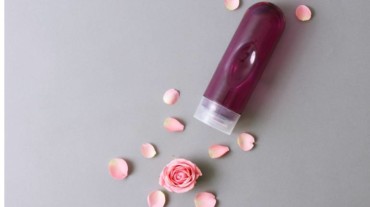Chat with ![]()

Chat with ![]()


Get AI-powered answers to all your health related queries!


Lubrication during sexual intercourse is very important if you want to have a painless and pleasant experience. Not to mention, it also ensures that your vaginal lining is not damaged.
While your body produces natural fluids when you are sexually aroused to aid this essential process of lubrication, certain factors can lead to dryness. Hormonal changes, ageing, menopause, and/or medication—all these culprits can lead to less natural lubrication. But fret not, because artificial lubricants or lubes can help.
Lubes can help enhance arousal, boost sexual pleasure, keep your vaginal skin soft, and, most importantly, reduce friction during penetration. You can buy your lube off the internet or find it over the counter in pharmacies. But before you take the plunge, you need to which kind of lube is best suited for you.
Here are your options:
1. Water-based lubes
The most versatile of the lot, not only do water-based lubes work for sexual intercourse, but they are also great for sex toys. They are safe to use with both latex and non-latex condoms, and can, in fact, reduce the chances of the condom breaking.
Water-based lubes reduce friction and can also balance the pH of your vagina. Plus, they won’t stain your sheets and wash off easily with just water.

2. Silicone-based lubes
If you have really sensitive skin, then a silicone-based lube is the right choice for you. They are hypoallergic, which cancels out the chance of any reaction on the skin.
If you are looking for something that won’t let you down during a long session, then silicone-based lubes should be your choice because you won’t have to reapply over and over again.

However, if you are using a silicone toy, then this lube can create abrasions in the toy, making room for bacteria to grow. Hence, it is advisable that you stick to water-based lubricants for your sex toys.
3. Oil-based lubes
Known for lasting really long, oil-based lubes are natural and easily available. However, these lubes are also associated with increased chances of the condom breaking and a higher risk of vaginal infections. Know that they are also going to stain your bedsheets and take forever to clean up.
Also, read: Out of lubes? Don’t even think about using these 7 things as substitutes
While buying a lube, remember…
Pay attention to the ingredients listed on the packaging. Find a lube that is paraben-, glycerin- and petroleum-free in order to minimize your risk of infections.
Another way to ensure that you are going for the right product is to check the pH value of the product (if it’s an over the counter purchase, maybe you can ask the pharmacist to do a litmus paper test).
A healthy vagina should maintain the pH level of 3.5 to 4.5, so the lube you use should also be around the same level. And in case you are using silicone toys and/or condoms, look for lubes that are “plastic friendly”.